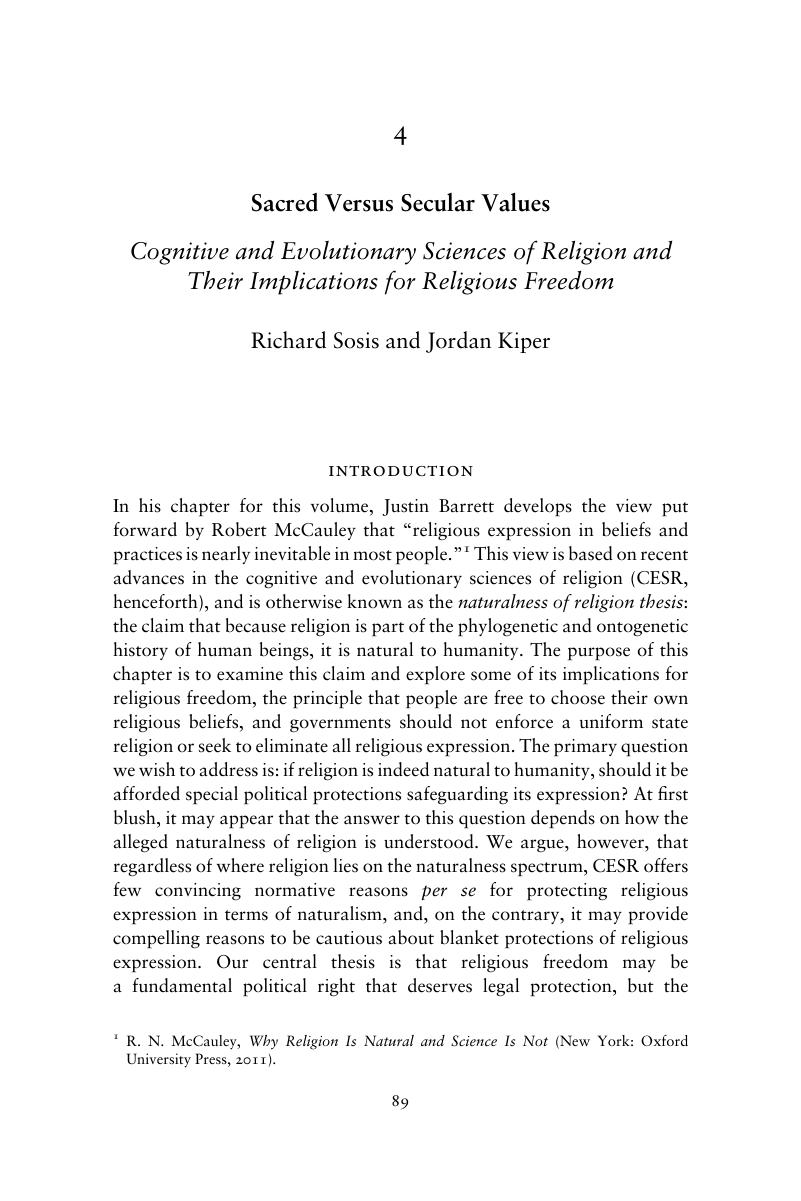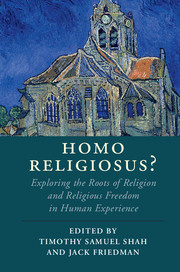Book contents
- Homo Religiosus?
- Cambridge Studies in Religion, Philosophy, and Society
- Homo Religiosus?
- Copyright page
- Epigraph
- Contents
- Contributors
- Introduction
- 1 Are Human Beings Naturally Religious?
- 2 Are Human Beings Naturally Religious?
- 3 On the Naturalness of Religion and Religious Freedom
- 4 Sacred Versus Secular Values
- 5 Theism, Naturalism, and Rationality
- 6 Alvin Plantinga on Theism, Naturalism, and Rationality
- 7 Research on Religion and Health
- 8 Religion, Health, and Happiness: An Epidemiologist’s Perspective
- 9 Why There Is a Natural Right to Religious Freedom
- 10 Religious Liberty, Human Dignity, and Human Goods
- 11 Human Rights, Public Reason, and American Democracy
- Index
4 - Sacred Versus Secular Values
Cognitive and Evolutionary Sciences of Religion and Their Implications for Religious Freedom
Published online by Cambridge University Press: 20 December 2017
- Homo Religiosus?
- Cambridge Studies in Religion, Philosophy, and Society
- Homo Religiosus?
- Copyright page
- Epigraph
- Contents
- Contributors
- Introduction
- 1 Are Human Beings Naturally Religious?
- 2 Are Human Beings Naturally Religious?
- 3 On the Naturalness of Religion and Religious Freedom
- 4 Sacred Versus Secular Values
- 5 Theism, Naturalism, and Rationality
- 6 Alvin Plantinga on Theism, Naturalism, and Rationality
- 7 Research on Religion and Health
- 8 Religion, Health, and Happiness: An Epidemiologist’s Perspective
- 9 Why There Is a Natural Right to Religious Freedom
- 10 Religious Liberty, Human Dignity, and Human Goods
- 11 Human Rights, Public Reason, and American Democracy
- Index
Summary

- Type
- Chapter
- Information
- Homo Religiosus?Exploring the Roots of Religion and Religious Freedom in Human Experience, pp. 89 - 119Publisher: Cambridge University PressPrint publication year: 2018
- 3
- Cited by

